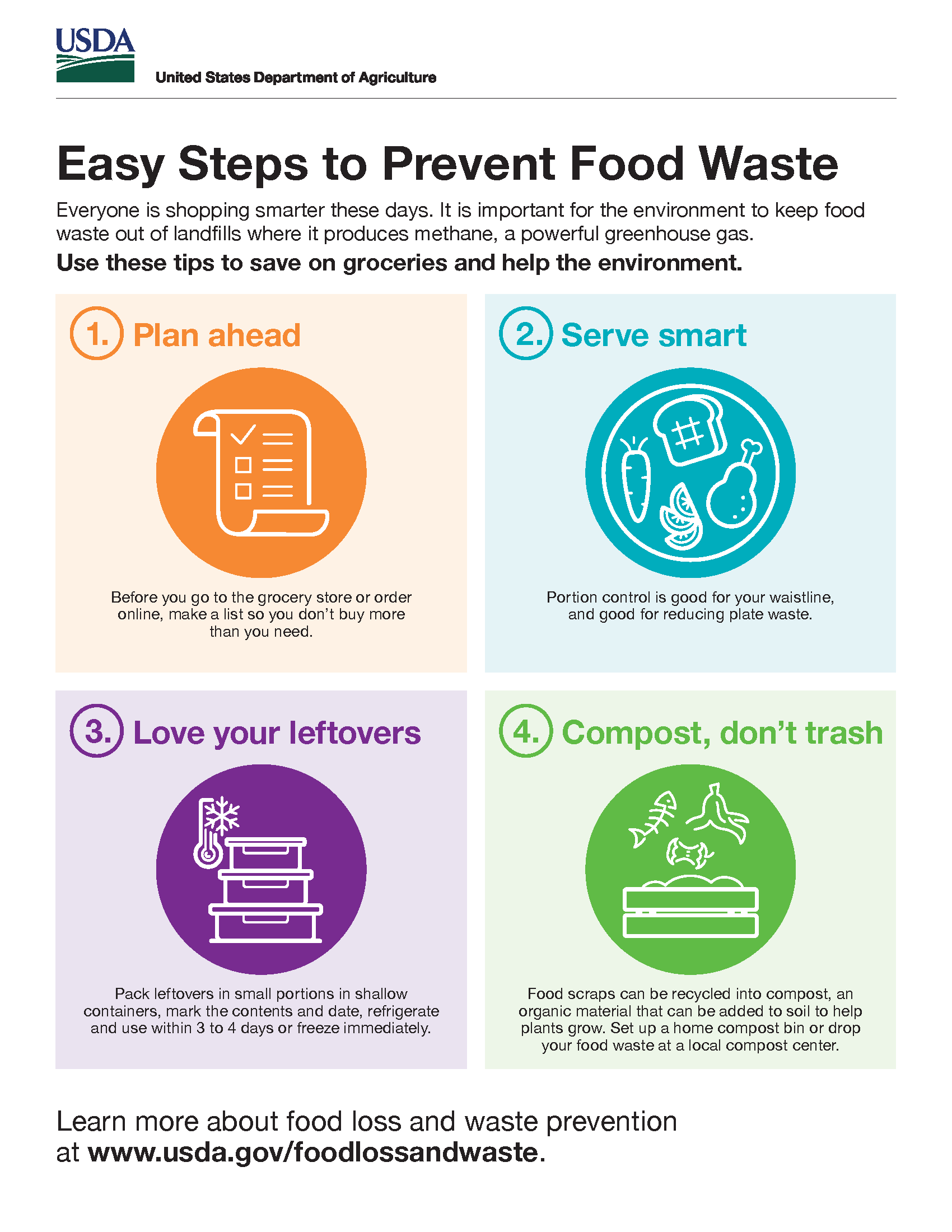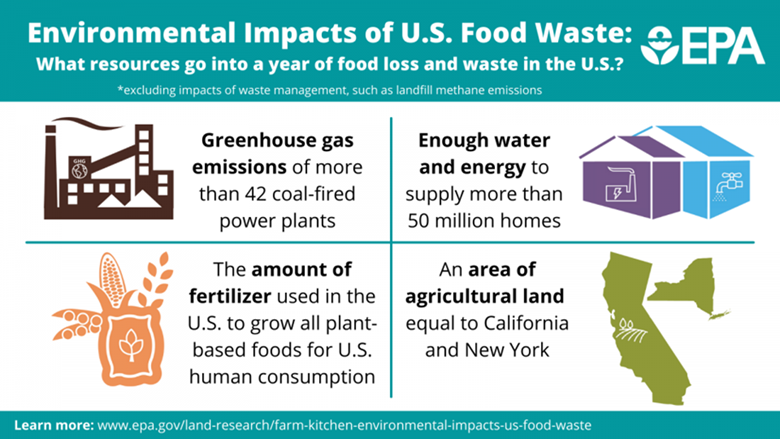Food waste is a significant global issue, with an estimated 1.3 billion tonnes of food being wasted each year. Not only does this contribute to environmental problems, but it also represents a significant loss of money and resources. However, there are several steps that individuals and communities can take to minimize food waste and its impact. In this article, we will explore some effective strategies to reduce food waste and promote a more sustainable approach to food consumption.

Credit: www.epa.gov
1. Plan Your Meals
One of the most effective ways to reduce food waste is by planning your meals in advance. Before heading to the grocery store, take some time to plan out your meals for the week. Make a list of the ingredients you need and stick to it when shopping. By only purchasing what you need, you can avoid buying excess food that may end up going to waste.
2. Proper Storage
Properly storing food can significantly extend its shelf life. Invest in airtight containers for storing leftovers and utilize the refrigerator and freezer to preserve perishable items. When storing fruits and vegetables, be mindful of ethylene-producing and ethylene-sensitive items to prevent premature spoilage. By understanding the best storage practices for different foods, you can minimize unnecessary waste.
3. Embrace Imperfect Produce
Many fruits and vegetables are discarded due to their appearance, despite being perfectly edible. Embrace “ugly” produce and consider purchasing imperfect items that may otherwise be thrown away. By supporting efforts to reduce waste based on cosmetic standards, you can help reduce the overall volume of food that goes to waste.
4. Proper Portioning
When serving meals, strive to portion out appropriate serving sizes to avoid overeating and subsequent food waste. By using smaller plates and being mindful of portion sizes, individuals can reduce the amount of food that goes uneaten. Additionally, consider saving leftovers for future meals rather than discarding them after a single use.
5. Composting
Composting is an excellent way to divert food scraps from ending up in landfills. By composting organic waste, such as fruit and vegetable peels, coffee grounds, and eggshells, individuals can contribute to the creation of nutrient-rich soil for gardening and agriculture. Composting not only reduces the volume of waste but also supports sustainable practices for soil health and plant growth.
6. Donate Surplus Food
Instead of allowing excess food to go to waste, consider donating surplus items to local food banks or community organizations. Many individuals and families are in need of food assistance, and by donating edible surplus, you can help address food insecurity while minimizing waste. Additionally, supporting food rescue programs and initiatives can help redistribute excess food to those in need.
Credit: nap.nationalacademies.org
Frequently Asked Questions Of How To Reduce Food Waste: 10 Powerful Tips For Minimizing Food Loss
How Can I Reduce Food Waste At Home?
Reducing food waste at home can be achieved by planning meals, composting unused food, and using leftovers creatively.
What Are Some Practical Tips To Minimize Food Waste?
Practical tips to minimize food waste include shopping with a list, properly storing food, and utilizing freezer for preserving food items.
Why Is It Important To Reduce Food Waste?
Reducing food waste helps conserve natural resources, reduces greenhouse gas emissions, and saves money for individuals and the environment.
How Can I Make My Grocery Shopping More Sustainable?
You can make your grocery shopping more sustainable by buying only what you need, avoiding over-packaged items, and choosing local and organic produce.
Conclusion
Reducing food waste is a collective effort that requires conscious actions at both individual and community levels. By implementing practical strategies such as meal planning, proper storage, embracing imperfect produce, portioning, composting, and donating surplus food, individuals can make a positive impact in reducing food waste. Through these efforts, we can work towards a more sustainable and environmentally conscious approach to food consumption and waste management.
